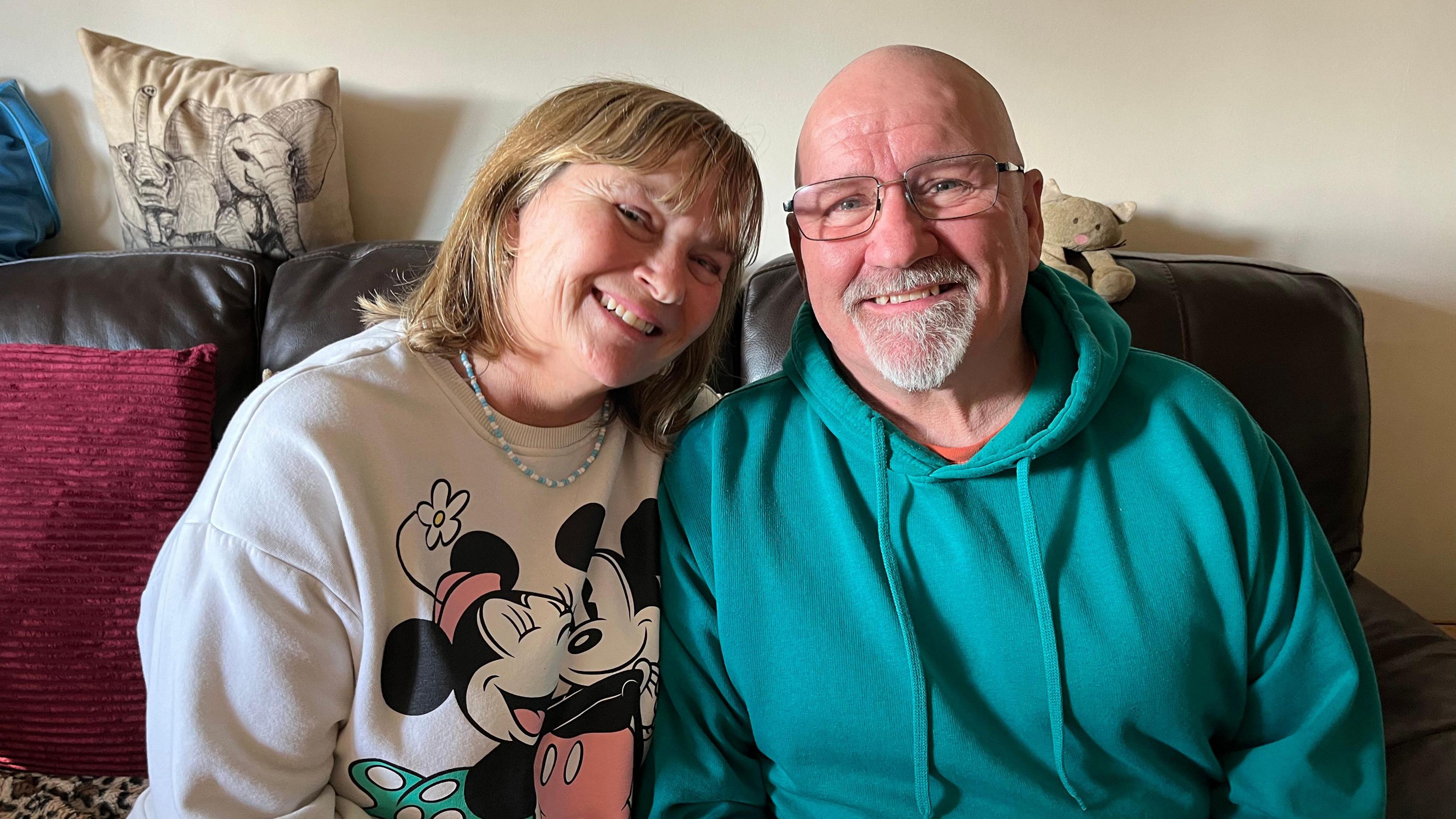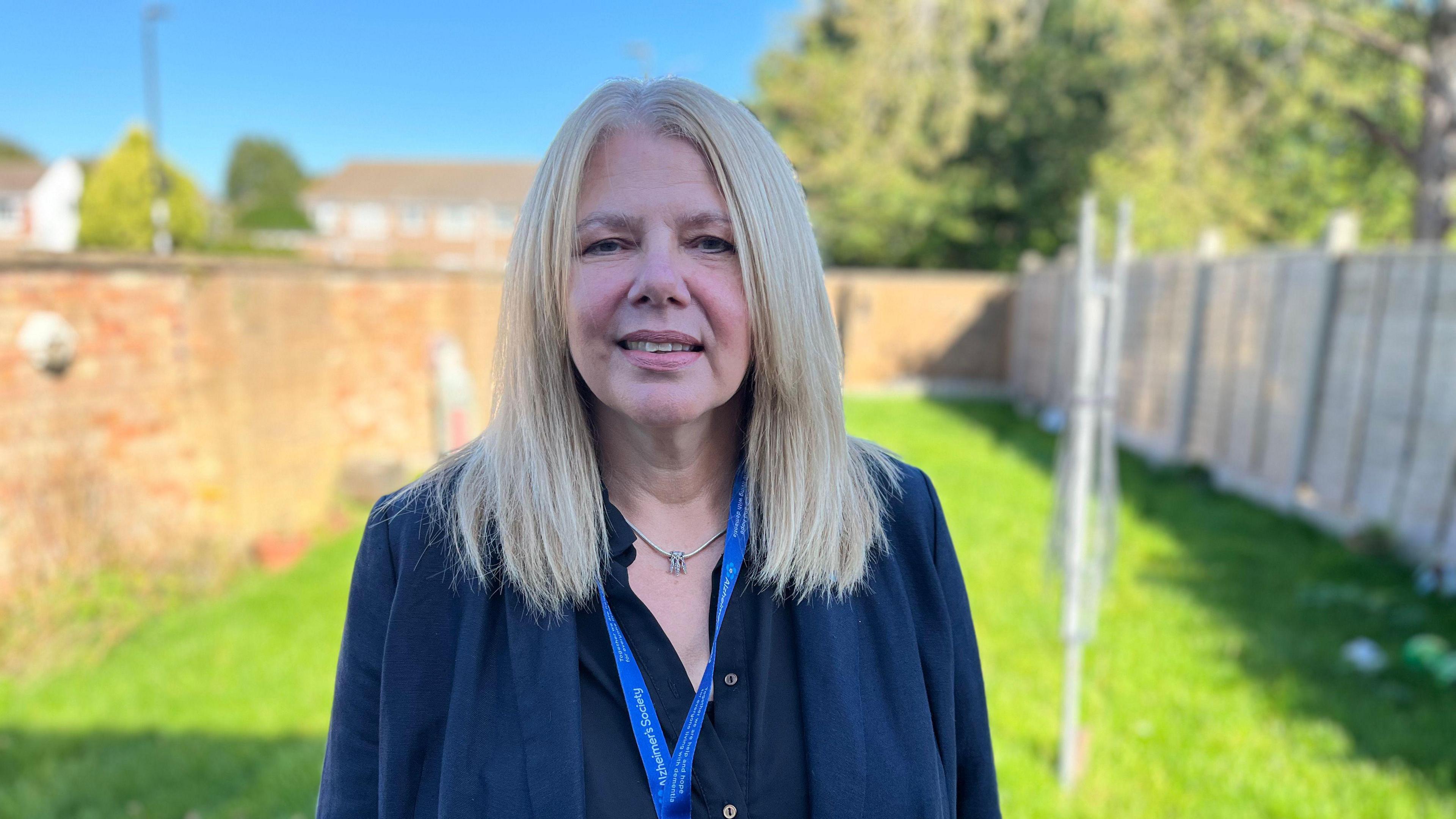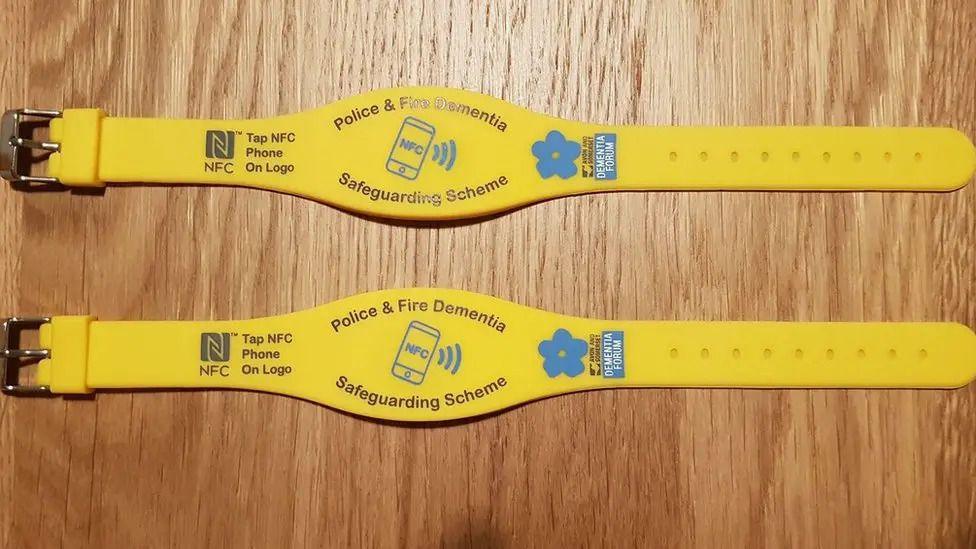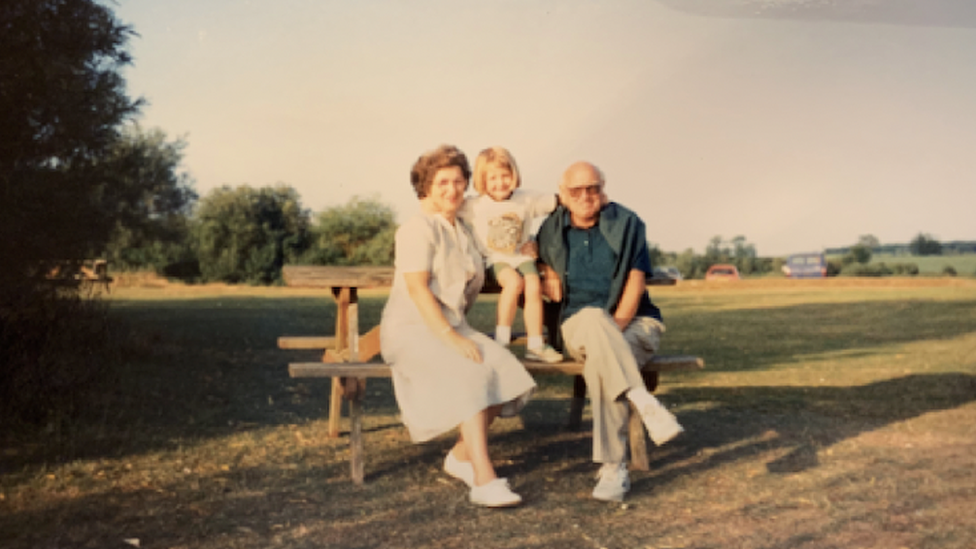Woman's dementia misdiagnosed as menopause

Tracey Lane said it took two years for doctors to correctly diagnose her with dementia
- Published
A woman who was diagnosed as being menopausal when she actually had early onset dementia is urging others not to ignore the signs that something is wrong.
Tracey Lane, from Clevedon, in North Somerset, said it took two years for doctors to correctly diagnose her with the condition at which point she was 51.
"For a long time, I just couldn't understand what was going on. I kept feeling really low, but I had no reason to," Ms Lane said.
Lorna Robertson, from the Alzheimer’s Society, added: "It's really important to get a diagnosis so you can get the treatment and support you need to be able to live the best life you can with dementia."
Ms Lane used to work in a school and is one of a growing number of people living with the condition.
She said she went to the doctors when she started to forget how to do routine things.
At 49 years old, they initially thought she was going through the menopause, but a scan later showed damage to the front of her brain.
Ms Lane is now urging people to get diagnosed.
"If you feel you have a problem, get it checked," she said.
Her husband Mike said the two years waiting for a diagnosis had been very "worrying", adding: "The not knowing is worse than the diagnosis."

Ms Robertson said dementia and menopause symptoms could be very similar
Memory loss, difficulty concentrating, finding it hard to carry out familiar daily tasks, struggling to follow a conversation and mood changes are all symptoms of dementia, according to the NHS, external.
Ms Robertson said that people, especially women, needed to be aware of how similar those symptoms could be to the menopause, but added it was very unusual to be diagnosed with dementia in your 40s or 50s.
"This is why it is incredibly important to seek help if something doesn't feel right and to visit your GP and get that diagnosis and seek the help that is needed," she said.
More than 101,000 people are living with dementia in the South West and numbers are set to rise to more than 147,000 by 2040, according to Alzheimer's UK.
Ms Robertson said this was due to an ageing population.
"One of three of us born today will go on to develop dementia," she said.
For Ms Lane, she mostly struggles with facial recognition and eating.
"We go to the local coffee shop once a day and there'll be people there I've seen every day for 15 years and not recognise," she said.
"I've been eating the same thing for a long, long time. Recently, I've been brave and I'm very proud of myself because I started to have a banana and I've had an apple."
She said she now tries to be as positive as she can.
"When you do actually find out, as odd as it sounds, to find out you've got dementia, it is almost better because you know what is going on, you can make sense of it," she said.
Get in touch
Tell us which stories we should cover in Bristol
Follow BBC Bristol on Facebook, external, X, external and Instagram, external. Send your story ideas to us on email or via WhatsApp on 0800 313 4630.
- Published27 September 2024

- Published22 December 2023
